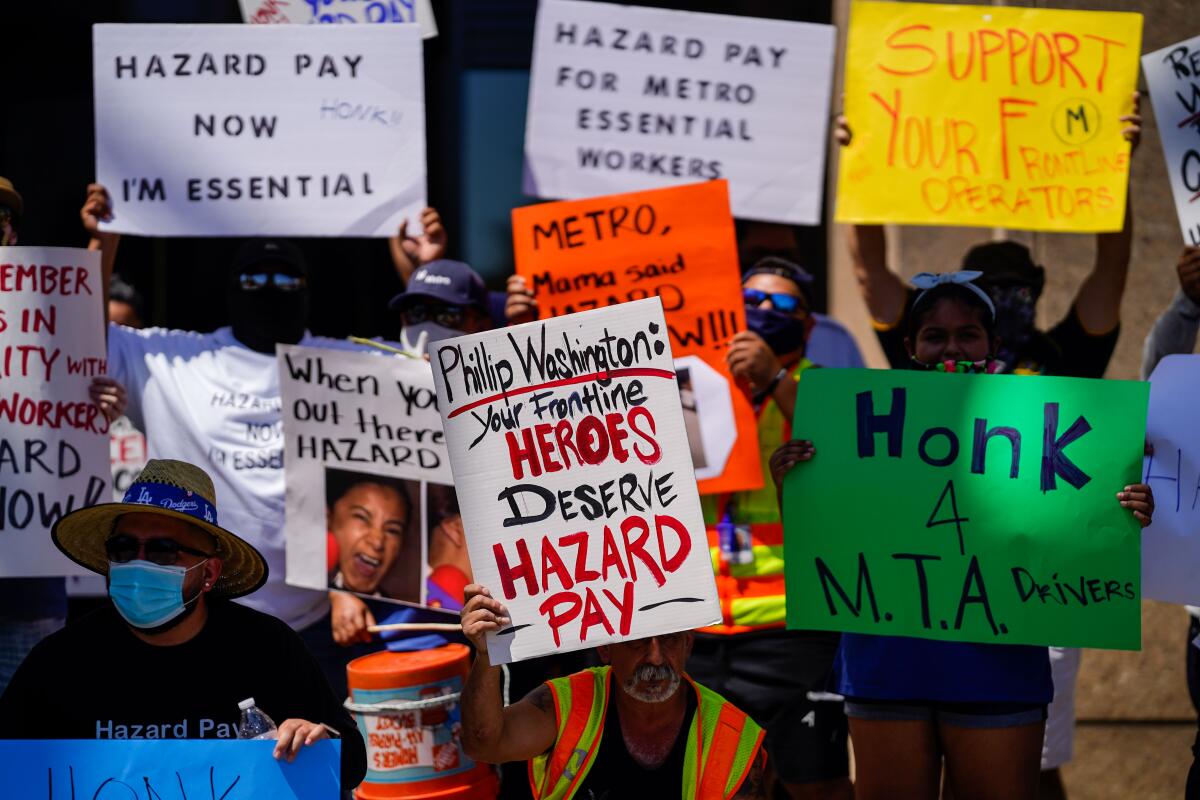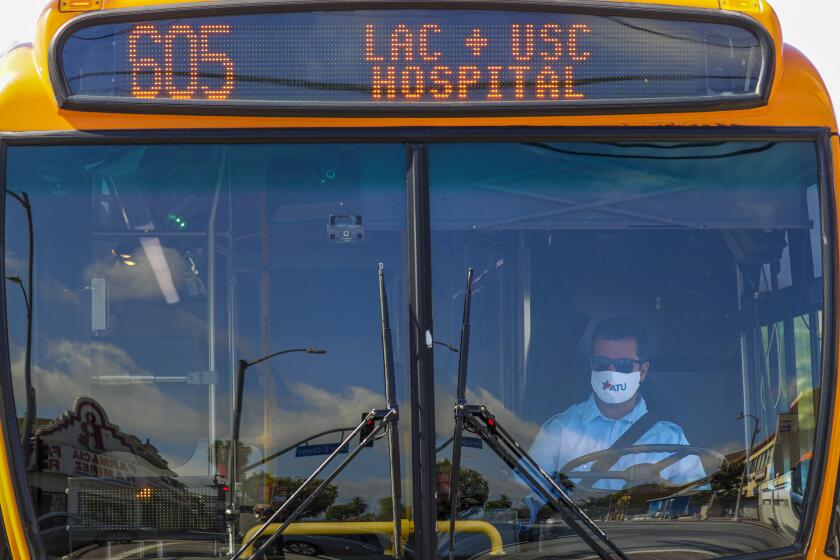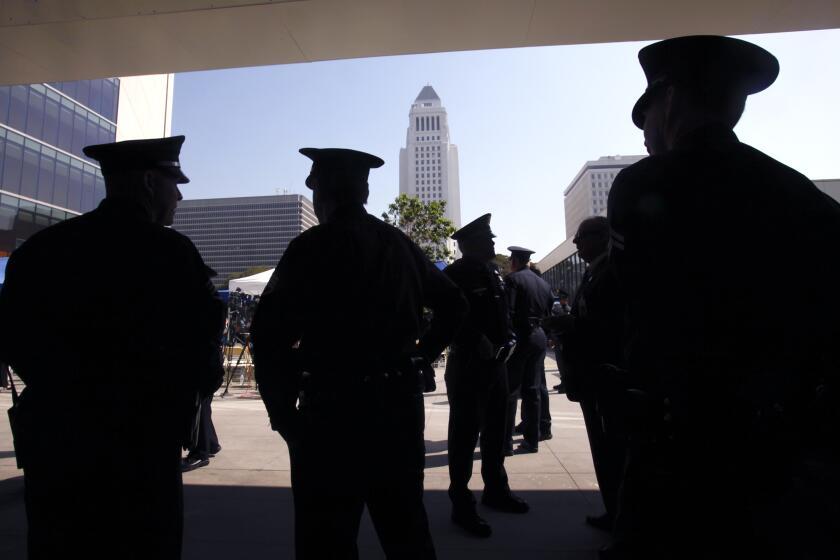‘We are essential, too.’ L.A. Metro bus drivers protest for coronavirus hazard pay

Los Angeles County bus drivers staged a protest outside Metropolitan Transportation Authority headquarters Friday, demanding hazard pay for transit employees who are working during the COVID-19 pandemic.
Bus drivers in crisp blue shirts and neon vests banged on drums and hoisted handmade signs into the air, including some that read, “Honk 4 MTA drivers” and “Got hazard pay?”
Drivers said they face a greater risk of contracting the novel coronavirus as cases surge in L.A. County and bus lines grow more crowded. Metro cut bus service in April by about 29% after ridership and revenue plummeted, but riders are coming back, drivers said.
“We want Metro to recognize that we are L.A. — that we move L.A.,” said Sandra Pineda, a driver and an officer for one of the five local unions for bus drivers. The protest was not organized by the bus drivers union, a local affiliate of SMART, the International Assn. of Sheet Metal, Air, Rail and Transportation Workers.
L.A. bus drivers are working during the coronavirus crisis. That means spending hours in a confined space with riders and worrying they may get sick.
Nearly four dozen drivers have tested positive for COVID-19, and one driver has died. Wilfredo Corsino, 65, worked at Metro for 23 years, most recently as a trainer for new drivers on downtown bus routes, his co-workers said.
Mayor Eric Garcetti, the chairman of Metro’s board of directors, said he is “sympathetic” to the dangers bus drivers face. He said Metro’s directors have authorized negotiators to discuss the issue with the labor unions that represent Metro workers.
“I absolutely am in favor of trying to figure out whether we can afford to do that,” Garcetti said.
The coronavirus has cut deeply into Metro’s main source of revenue, reducing sales tax income by 30% in April and May, Chief Executive Phil Washington said last month. Garcetti said the agency is facing a $1-billion deficit.
Metro spokesman Dave Sotero said that drivers received a 4.5% raise July 1, guaranteed through a union contract approved in 2017, and that the agency is “committed to ensuring that all employees remain on the job — no furloughs, no layoffs.”
Some drivers held signs urging Congress to pass a $2-trillion coronavirus relief package, called the Heroes Act, that could help Metro cover the cost of hazard pay for transit employees.
The legislation would give essential workers a $13-an-hour retroactive raise, effective from the start of the pandemic through Dec. 31. The hazard pay would be capped at $25,000 for workers who earn less than $200,000 a year.
“We should be treated as well as people who work at supermarkets and people who work at Amazon,” said Metro operator Johnny Moreno, who drives the Line 30 bus. “We are essential, too.”
Moreno’s son, who is starting sixth grade in the fall, has a heart condition and a weakened immune system. Moreno said he hears passengers coughing on his bus and worries that he will spread the disease to his family.
“I can’t kiss him, I can’t hug him,” Moreno said.
After bus drivers said they were scared to go to work in an enclosed space with strangers, many of whom were not wearing masks, Metro approved a mandatory mask rule for all riders. But that rule is toothless, drivers say, because they cannot refuse service to passengers who don’t obey it.
“We don’t want to feel that we’re disposable,” said driver Emma Bolton, who joined the protest on her break. She said she worries that the Line 720 and Line 745 buses are too crowded for riders to practice physical distancing.
More to Read
Sign up for Essential California
The most important California stories and recommendations in your inbox every morning.
You may occasionally receive promotional content from the Los Angeles Times.











